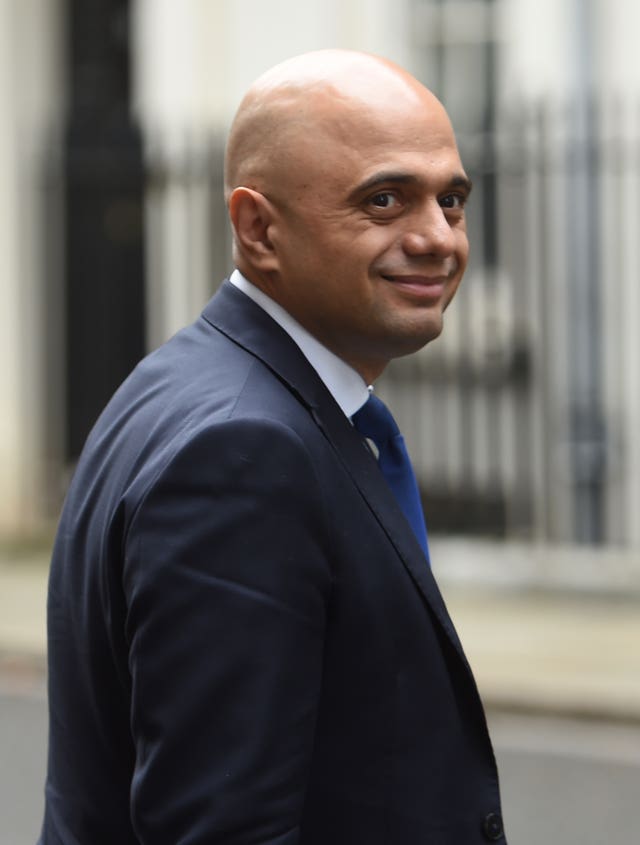Chancellor Sajid Javid has been dealt a pre-Budget blow as official figures showed the first September hike in government borrowing for five years.
The Office for National Statistics (ONS) said public sector net borrowing, excluding state-owned banks, rose by £60 million to £9.4 billion year-on-year in September.
This marks the first September annual rise in borrowing for five years.

The borrowing hike comes despite the government receiving a £1.1 billion dividend boost last month from part-nationalised lender Royal Bank of Scotland.
The ONS said borrowing was pushed higher due to seasonal payments of £2 billion for winter fuel and £2.7 billion for student loan write-offs – both of which are recorded in September each year.
In the six months of the financial year so far, government borrowing hit £40.3 billion – a rise of £7.2 billion on a year earlier.
The September borrowing increase has pushed up Britain’s current budget deficit to £18.5 billion in the six months of 2019-20 so far – a 29% hike on a year earlier.
Borrowing in the financial year-to-date (April to September 2019) was £40.3 billion, £7.2 billion more than in the same period last year https://t.co/alKX8bNtBk pic.twitter.com/Pw4eM6Ozsr
— Office for National Statistics (@ONS) October 22, 2019
But the ONS data showed national debt now stands at 80.3% of gross domestic product (GDP), down from 81.5% a year earlier.
The figures come just weeks ahead of Javid’s 6 November Budget and follow the chancellor’s pledge that he was “turning the page on austerity”.
However, economists said figures for the year so far signal he is on track to miss his aim to keep borrowing below 2% of GDP in 2020-21.
And changes to the treatment of student loans – which now assume that many graduates will not be able to replay all their student debts – also mean Javid is likely to overshoot borrowing targets for this financial year.
In March, the Office for Budget Responsibility forecast public borrowing would rise from a 16-year low of 1.1% of economic output in 2018/19 to 1.3% of GDP or £29.3 billion in 2019/20.
Pantheon Macroeconomics said the government is set to miss this by a wide margin, forecasting borrowing of around £50.3 billion in 2019-20 – or 2.3% of GDP.
Samuel Tombs at Pantheon said Javid is likely to ignore the borrowing headache in the upcoming Budget and with the threat of another general election looming large.
He said: “No political appetite exists for further austerity measures to reduce the deficit.
“Indeed, the chancellor allocated in last month’s Spending Round an extra £12 billion to departments to spend in 2020/21, over and above that already planned for in the Spring Statement, while both parties will pledge giveaways to the electorate in the election likely to be held in the coming months.
“If the next Budget is held as currently planned on November 6, voters can expect pre-election sweeteners from the Conservatives.”

















